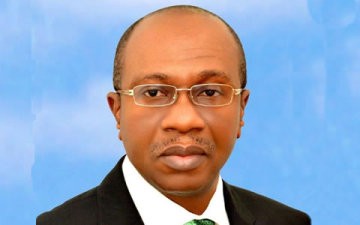Business
CBN short term policy cycle raises market panic

Prevailing Central Bank of Nigeria’s (CBN) policies of frequent liquidity mop up as well as amendments of regulatory rules have been faulted by some financial industry experts who find the approach unsavoury and counter-productive to managing the nation’s monetary policy. Some market analysts said that the CBN’s short term policy stance is raising industry temperature with regard to the quality of the apex bank’s approach to solving some macroeconomic issues bedevilling the nation including rising price instability.
They feel that Mr. Godwin Emefiele’s administration is driving the monetary policy with improvised and untested measures in the past six months to address worsening economic issues, which may be hurting the economy at large.
They weighed their claims on the short time it takes CBN to make pronouncement, modifications and outright adjustment in the sensitive banking sector as well as in foreign exchange market.
They stressed that the CBN in its activities to manage the banking sector has come up with quite a number of policies which are soon abandoned or amended after being introduced.
Afrinvest in its recent note on the economy said the CBN’s approach to managing Naira at foreign exchange market is unsustainable, which perhaps supports the view that Naira should be devalued again to reflect its true underlining value.
A source in the financial service said that; “The CBN policies are sensitive, as such it should not be a short term thing. The apex bank should always consider the quality of it’s proposed guideline before it comes out as a policy guidance.
The short term approach so far may not augur well for the economy”.
Jide Famodun, Consultant at LeverageSolutions, is of the opinion that the leadership of the CBN has not been able to find it’s route at managing the economy from foreign exchange to price stability. Foreign exchange market intervention which gives Naira pseudo-stability remains unsustainable in the long run.
Currently, lack of standard economic policy approach by the new government is impacting on investors sentiments in the capital market.
Investors are re-pricing financial assets including bonds as equities market remains unattractive.
This may prove grave for economic health coupled with the fact that CBN has lost touch with price stability achievement enjoyed up to June 2014.
The leadership of erstwhile Governor of the CBN, Sanusi Lamido Sanusi, had set a single digit inflation target which formed one of the many technical inputs into bond pricing.
However, in the last six months, the economy has been low on price stability due to the six consecutive upticks in general prices of goods and services in the nation.
Over this period, the apex bank has maintained systemic watch on liquidity, an approach that aims at controlling money supply into the economy.
Nigeria Bureau of Statistics last week released the nation’s headline inflation rate.
According to the report, consumer inflation rose to 9.0 percent year-on-year in May, the upper end of CBN target, from 8.7 percent in April, marking it the highest rate since May 2013.
Food inflation edged higher to 9.8 percent year-on-year in May, up 0.3 percentage points from April, due to the late onset of rains which pushed back the harvest season and a hike in transport costs because of fuel shortage, the Bureau said.
“Food prices rose by 1.1 percent in May, the highest month-on-month increase recorded on food prices since September 2012”; the NBS noted.
NBS in March said it expected inflation to inch up to around 9 percent this year, from its January forecast of 8.78 for 2015, following currency devaluation meant to counter the effects of lower revenues from crude oil.
In the CBN attempt to control money supply, there was internal leakage in its system.
It was gathered that the CBN unchecked tightening stance has cost the economy significant lost of private sector led investment flow as interest rate environment remains unfriendly for real sector economic growth.
As a result, the level of participation of private sector contribution to the economy via small and medium scale entrepreneurial development has been low while imported goods dominate the private goods market.
According to data available from the Nigeria Bureau of Statistics, the economy expanded at 3.96 per cent year on year in the first quarter of fiscal year 2015, the lowest growth since the last quarter of 2012.
On the contrary, inside sources from the apex Bank had accused both bankers and other high net-worth businessmen as responsible for the challenges of the country’s foreign exchange given their unethical ways of attacking the local currency.


